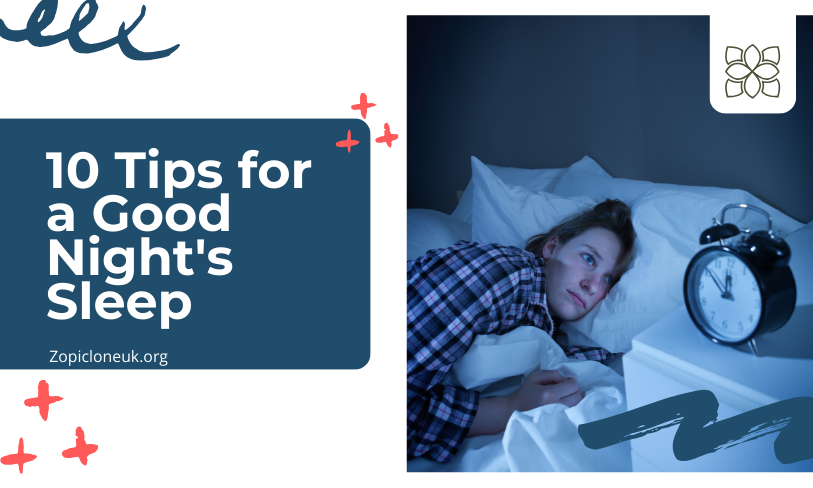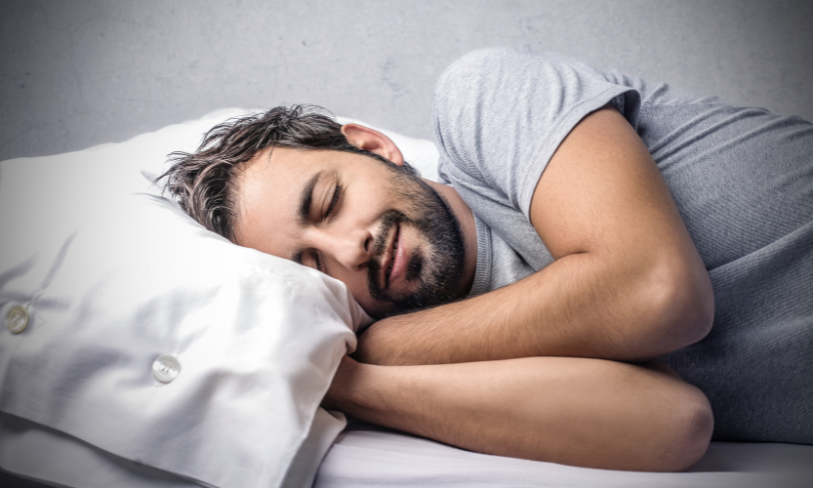
Trouble Sleeping? Here Are 10 Tips for a Good Night’s Sleep:- Having trouble sleeping can significantly impact your daily life, leaving you feeling fatigued, irritable, and unable to focus. Whether you suffer from occasional sleepless nights or chronic insomnia, there are several strategies you can employ to improve your sleep quality. Here are ten tips to help you get a good night’s sleep and wake up feeling refreshed.
Contents
- 0.0.1 1. Establish a Consistent Sleep Schedule
- 0.0.2 2. Create a Relaxing Bedtime Routine
- 0.0.3 3. Optimize Your Sleep Environment
- 0.0.4 4. Limit Exposure to Light and Electronics
- 0.0.5 5. Be Mindful of Your Diet
- 0.0.6 6. Stay Active During the Day
- 0.0.7 7. Manage Stress and Anxiety
- 0.0.8 8. Limit Naps During the Day
- 0.0.9 9. Keep a Sleep Diary
- 0.0.10 10. Consider Professional Help
- 0.1 Conclusion
- 1 Author Details
1. Establish a Consistent Sleep Schedule
One of the most effective ways to improve your sleep is to go to bed and wake up at the same time every day, even on weekends. This helps regulate your body’s internal clock and makes it easier to fall asleep and wake up naturally.
2. Create a Relaxing Bedtime Routine
Engage in calming activities before bed to signal to your body that it’s time to wind down. This could include reading a book, taking a warm bath, listening to soothing music, or practicing relaxation exercises such as deep breathing or meditation.
3. Optimize Your Sleep Environment
Your bedroom should be a sleep sanctuary. Ensure that your mattress and pillows are comfortable, and keep the room cool, dark, and quiet. Consider using blackout curtains, earplugs, or a white noise machine to eliminate any disturbances.

4. Limit Exposure to Light and Electronics
Exposure to light, especially blue light from phones, tablets, and computers, can interfere with your body’s production of melatonin, a hormone that regulates sleep. Try to avoid screens for at least an hour before bed, and consider dimming the lights in your home as bedtime approaches.
5. Be Mindful of Your Diet
What you eat and drink can significantly affect your sleep. Avoid large meals, caffeine, and alcohol close to bedtime. Instead, opt for a light snack if you’re hungry, and choose sleep-friendly foods such as a banana or a small bowl of oatmeal.
6. Stay Active During the Day
Regular physical activity can help you fall asleep faster and enjoy deeper sleep. However, avoid vigorous exercise close to bedtime, as it can have the opposite effect. Aim to finish any intense workouts at least a few hours before you plan to go to sleep.
7. Manage Stress and Anxiety
Stress and anxiety are common culprits of sleep disturbances. Incorporate stress-reducing activities into your daily routine, such as yoga, journaling, or spending time in nature. Cognitive behavioral therapy (CBT) for insomnia can also be effective for those with chronic sleep issues.
8. Limit Naps During the Day
While napping can be beneficial, long or irregular napping during the day can negatively affect your nighttime sleep. If you need to nap, try to limit it to 20-30 minutes and avoid napping late in the afternoon.
9. Keep a Sleep Diary
Keeping track of your sleep patterns can help identify habits or conditions that may be affecting your sleep. Note down when you go to bed, wake up, how many times you wake up during the night, and how you feel throughout the day. This information can be valuable if you need to consult a healthcare professional.
10. Consider Professional Help
If you’ve tried these tips and still have trouble sleeping, it may be time to seek professional advice. A doctor or sleep specialist can help diagnose and treat any underlying sleep disorders and provide additional strategies for improving your sleep.
Conclusion
Improving your sleep habits takes time and consistency. By following these tips, you can create an environment and routine that promotes better sleep. Remember, good sleep is crucial for your overall health and well-being. If your sleep problems persist, don’t hesitate to seek help from a healthcare professional. Prioritize your sleep, and you’ll be better equipped to handle whatever challenges come your way during the day.
Author Details




Medical content by qualified psychiatrists
Our editorial policy

Zopiclone precautions Read our potential abuse notice

Looking for a seller? Locate the best Zopiclone vendor






